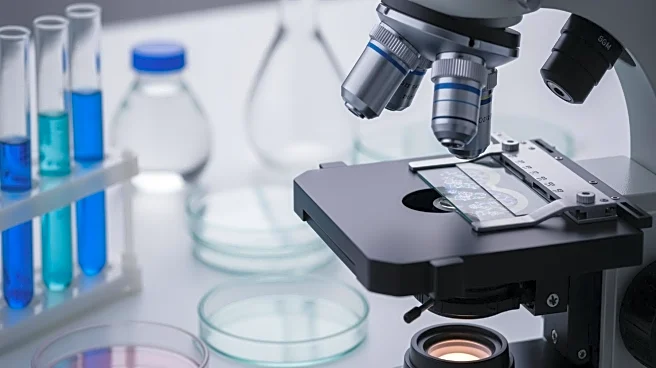What's Happening?
A research team has conducted a comprehensive study comparing pancreas development across pigs, humans, and mice. The study involved collecting pig pancreases at various gestation stages and analyzing
them alongside human and mouse data. Techniques such as single-cell RNA sequencing and integrated mRNA and protein co-detection assays were employed to map gene expression dynamics and cell fate transitions. The research identified distinct differentiation programs in endocrine progenitors between species, highlighting differences in gene expression profiles and lineage trajectories. The study also improved genome annotation for pigs, enhancing the accuracy of gene expression analysis.
Why It's Important?
This research is significant as it provides insights into the developmental biology of the pancreas, which is crucial for understanding diseases like diabetes. By comparing gene expression and cell differentiation across species, the study offers potential pathways for developing regenerative medicine approaches and improving stem cell therapies. The improved genome annotation for pigs could lead to more accurate models for human diseases, facilitating better drug development and therapeutic strategies. Understanding these biological processes is vital for advancing medical research and treatment options.
What's Next?
The study's findings may lead to further research into the specific genes and pathways involved in pancreas development and their implications for disease treatment. Researchers might explore the application of these insights in developing new therapies for diabetes and other pancreatic disorders. Additionally, the improved pig genome annotation could be used in future studies to refine disease models and enhance the understanding of gene function and regulation.
Beyond the Headlines
The ethical considerations of using animal models in research are highlighted by this study, emphasizing the need for responsible and humane practices. The cross-species comparison also raises questions about the evolutionary aspects of organ development and the potential for discovering universal biological mechanisms. These findings could influence future research directions in developmental biology and regenerative medicine.









